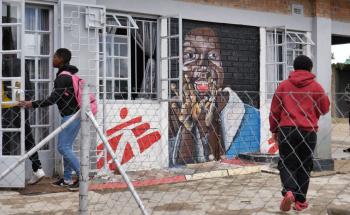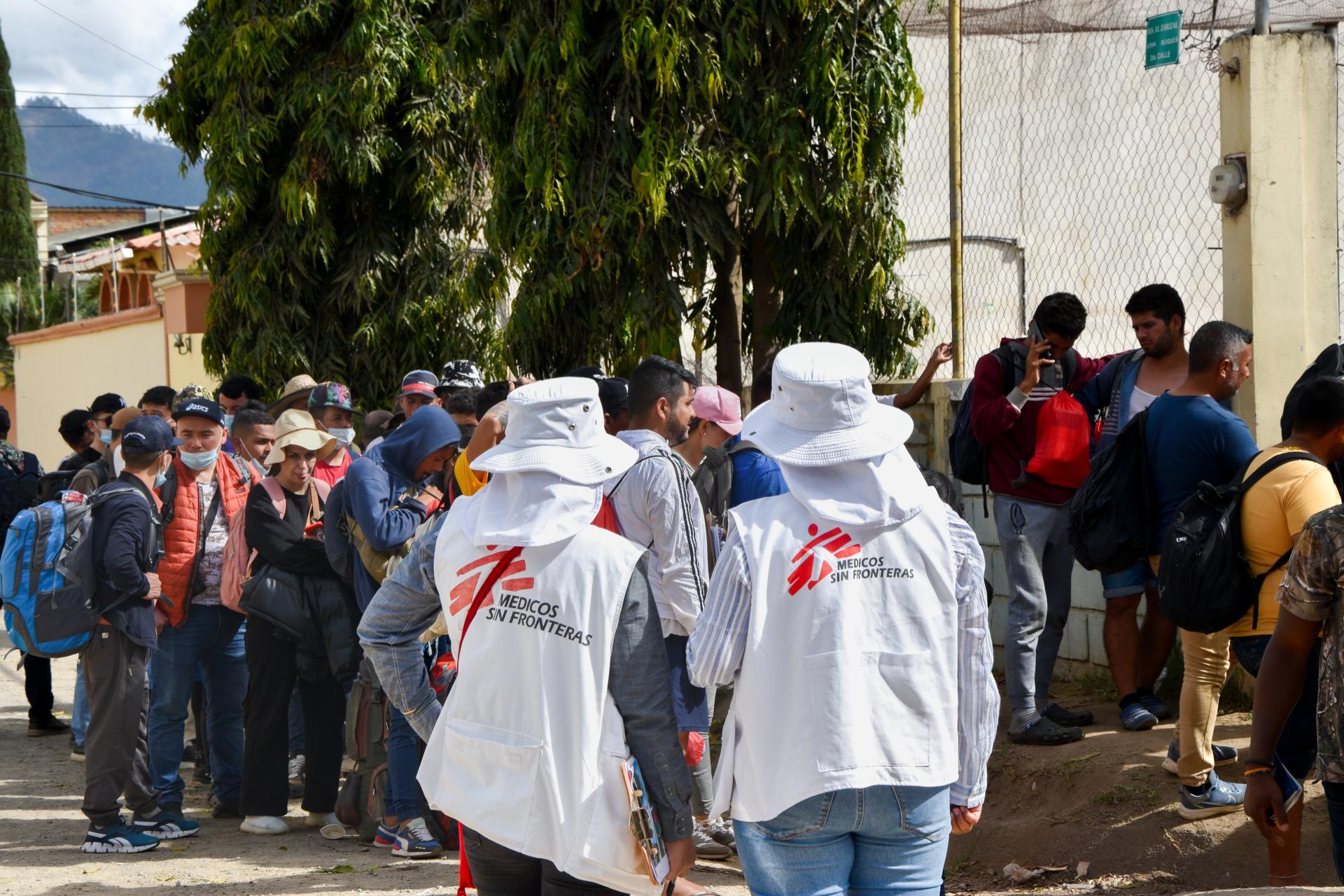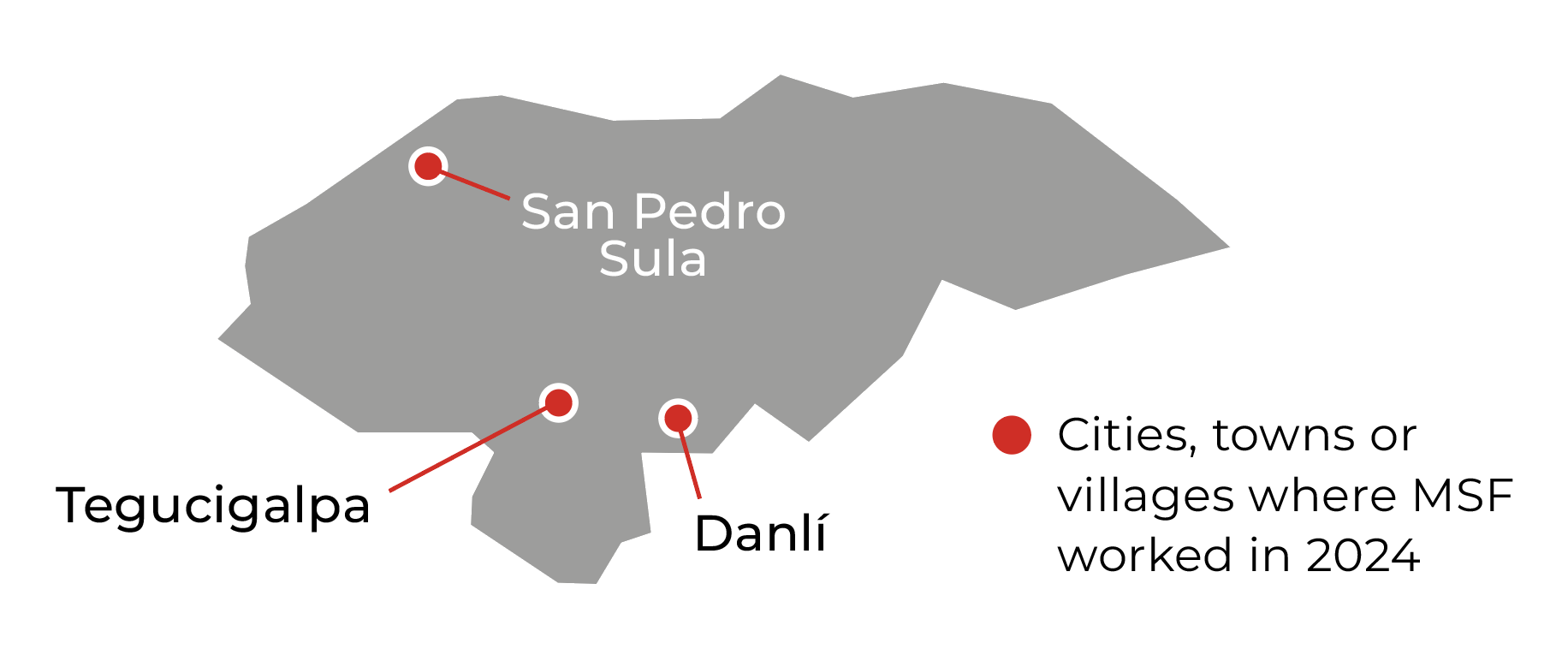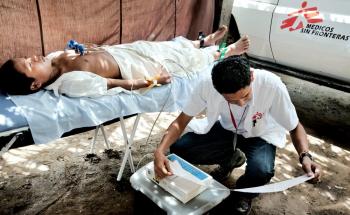

Honduras
In San Pedro Sula, we provided comprehensive health services for people who engage in sex work and members of the LGBTQI+ community, including psychosocial support, screening for cervical cancer and sexually transmitted infections, HPV vaccinations, family planning, and HIV pre-exposure prophylaxis (PrEP).
Our team also treated victims and survivors of sexual violence.
Our activities in Honduras in 2024
Data and information from the International Activity Report 2024.
214
214
€6 M
6M
1976
1976

Our first-ever response in Honduras followed Hurricane Fifí in 1974, and since then, we have remained committed to providing medical care to people affected by natural hazards, sexual violence, and disease outbreaks, as well as migrants travelling through the country.
As part of a study initiated in 2023 in collaboration with the World Mosquito Program, the Ministry of Health, and the National Autonomous University of Honduras, we released mosquitoes inoculated with Wolbachia, a bacterium that prevents them from carrying dengue. Future mosquito generations will inherit these bacteria, disrupting the transmission chain. By late 2024, most mosquitoes in the pilot area near the capital, Tegucigalpa, carried Wolbachia.
To address the high number of cases of dengue in northern Honduras, MSF supported the Ministry of Health with staff, medicines and medical supplies in four municipalities.
In 2024, we also maintained our base in Danlí, a city near the border with Nicaragua, offering medical and psychological care, social support, and health promotion services to migrants.
IN 2024

